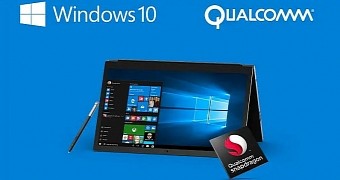Microsoft is betting big on Windows 10 on ARM in the long-term, but so far, this new platform has pretty much failed to make an impact because of several reasons.
One of the most important is the lack of 64-bit app compatibility, which makes a significant number of potential buyers stick with Intel for the time being.
But according to a report from Neowin, Microsoft wants to resolve this setback by 2021, as the company is already working on 64-bit app emulation for Windows 10 on ARM, with the target of bringing it to production devices in the first half of 2021.
At this point, Windows 10 on ARM already features 32-bit app emulation, but this of course tackles just part of the problem that comes with an ARM chip. But at the same time, it also highlights some of the things that Microsoft needs to take care of before bringing 64-bit app emulation to the market, and it all starts with app performance.
Performance struggles
Windows 10 on ARM is indeed able to run 32-bit apps, but on the other hand, there’s so much to improve in terms of performance. In fact, this is another reason why some people just don’t want to make the switch to Windows 10 on ARM, and this in turns has caused little interest from device manufacturers.
Microsoft thus needs to make sure that 64-bit apps will run as smoothly as possible when the emulation system is ready, but this of course could be less of a headache two years from today thanks to the new chips that will be readied by the first half of 2021.
At the end of the day, however, it’s pretty clear that Microsoft is fully committed to Windows 10 on ARM, and the Surface Pro X running this platform is living proof. With the right improvements from a software perspective, Windows 10 on ARM has the opportunity to become a more serious contender in the PC market.

 14 DAY TRIAL //
14 DAY TRIAL //